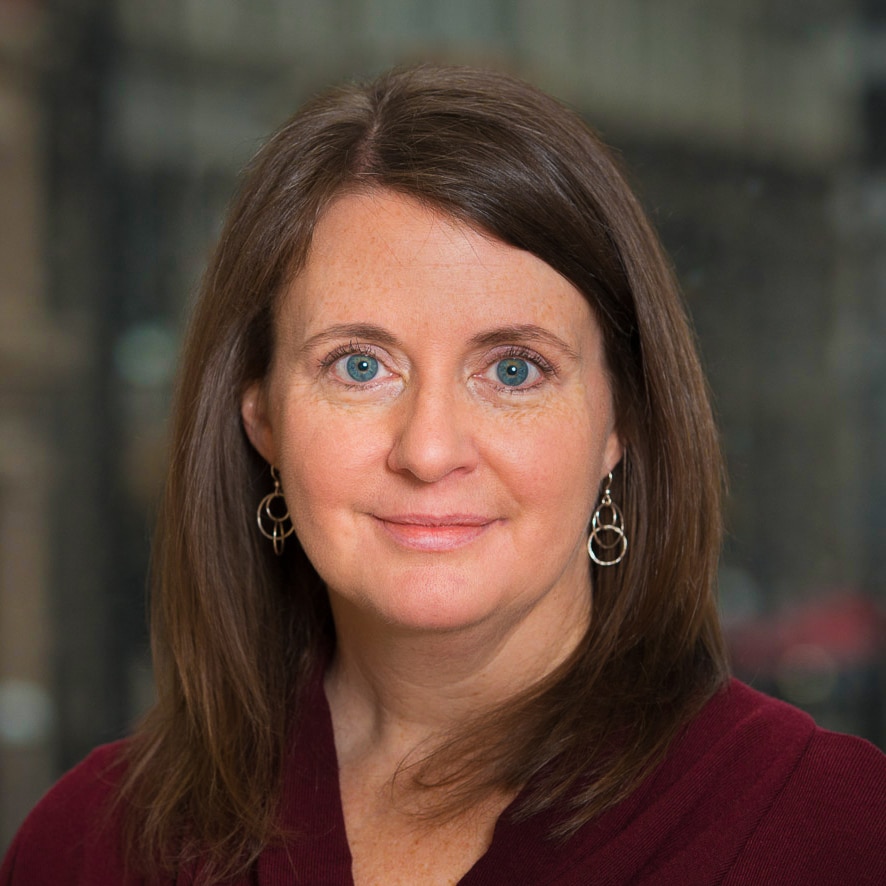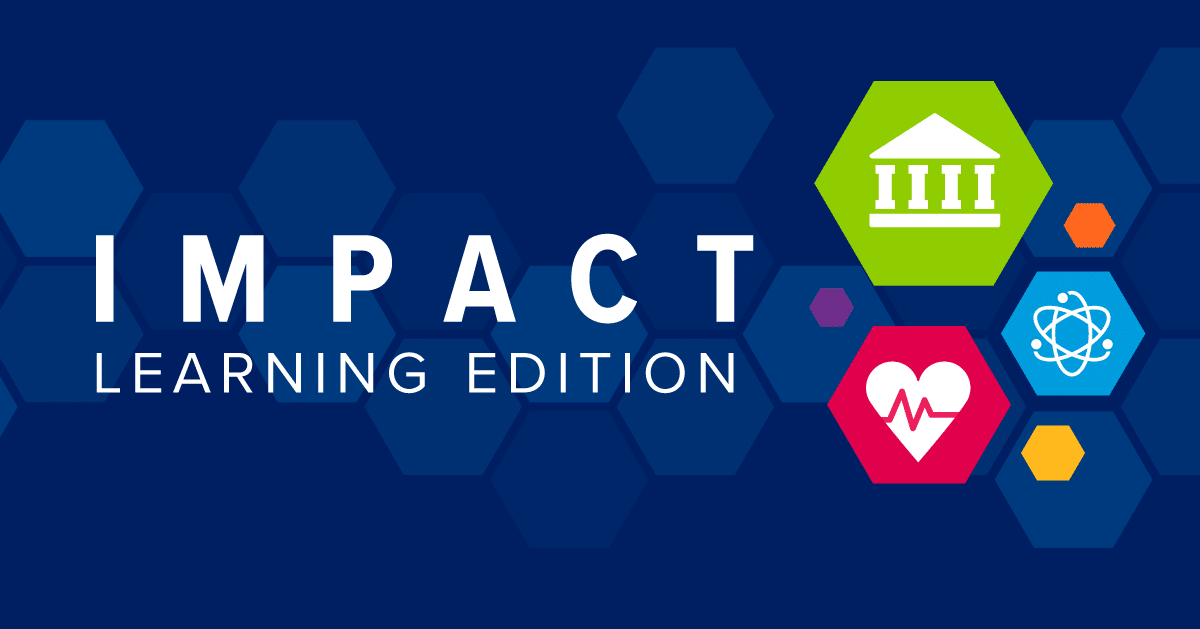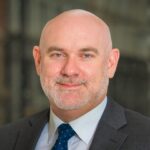Navigating changing education landscape can be hard. Some parts move much faster than others, and sometimes sudden events impact everyone and everything, changing the course of action. So we created IMPACT: Learning Edition to help education stakeholders – or anyone – engage in education systems and education futures.
Meet the avatars in IMPACT: Learning Edition, the characters you play as you navigate and fight for the futures you want in the changing education landscape.
Future learning environments should offer kids clear pathways toward success. – Ayren Batiste
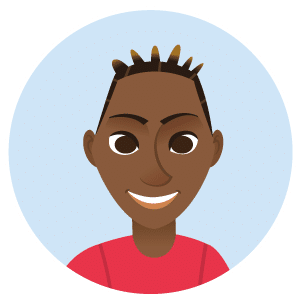 Ayren Batiste is a high-school junior who aspires to a STEM career. Named “Most Likely to Become President” by their classmates, they are always thinking about their next move and what it takes to succeed. Ayren scrutinizes every potential learning experience, extracurricular activity and work experience through the lens of how it might help them build toward college and career. Not surprisingly, Ayren thrives in learning environments where the connection to goals is clear.
Ayren Batiste is a high-school junior who aspires to a STEM career. Named “Most Likely to Become President” by their classmates, they are always thinking about their next move and what it takes to succeed. Ayren scrutinizes every potential learning experience, extracurricular activity and work experience through the lens of how it might help them build toward college and career. Not surprisingly, Ayren thrives in learning environments where the connection to goals is clear.
So what does Ayren want for the future? Ayren wants a future in which work and employment are prioritized – and there are clear paths to success. Ayren also places a high priority on ensuring that learning environments are effective and supportive of learners’ goals. Lastly, Ayren values science and technology, the zone of their expected career.
A player advancing Ayren’s future would be on the lookout for the kinds of developments listed below:
- The Robot Reorg – What if the top 500 companies digitized or automated 75% of the tasks traditionally performed by workers?
- School Houses Rock! – What if schools built community across grades by assigning students and educators to in-school “houses,” with each house meeting weekly and competing with other houses?
- Precision Ed – What if precision education used intimate details of people’s bodies and minds to tailor learning inputs and materials?
These kinds of developments could have a big influence on the things that Ayren prioritizes for the future. Sitting in Ayren’s seat for a few rounds of gameplay can shed fresh light on what they could mean for education futures.
In addition, Ayren’s story and perspective illustrate how we’re all looking to make the most of developments that promise to advance the futures we want. Even the most community-minded among us have preferences about what the future will look like – and we make decisions large and small about how to nudge today’s happenings in those directions.
I want this state to do well while doing well by each of its residents. – Karissa Williams
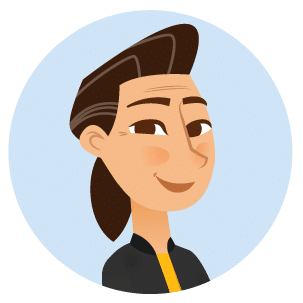 Karissa Williams was always a leader, so it came as no surprise when she was elected Governor in the year 2031. In her role, she seeks to foster productive civic discourse and bolster the state’s standing and economy. Governor Williams also works to ensure that the state has the resources needed to support its citizens, particularly those who, like her, need assistive devices to walk.
Karissa Williams was always a leader, so it came as no surprise when she was elected Governor in the year 2031. In her role, she seeks to foster productive civic discourse and bolster the state’s standing and economy. Governor Williams also works to ensure that the state has the resources needed to support its citizens, particularly those who, like her, need assistive devices to walk.
Those aspirations are no small charge. More specifically, Governor Williams wants a future in which policy and governance function well and hold people accountable to mutual goals. She also wants civic life to thrive, with people from all walks of life feeling free to participate in and influence society. Following closely behind those desires, Governor Williams wants to see strong social infrastructure provide people with the resources and supports they need and straightforward ways of accessing them.
A player competing for her interests would be scanning the environment the following kinds of changes:
- From Hashtag to Human Right – What if gender discrimination, sexual harassment and violence in workplaces and schools came to be considered international human rights violations?
- Flexing Their Civic Muscles – What if teenagers led the charge in protests – both online and in the streets – as political polarization in the U.S. continued to increase?
- The Incredible Shrinking Household – What if the average household in the U.S. continued to shrink, having already dropped from 3.36 in the 1960’s to 2.52 in 2020?
Such changes would impact Governor Williams’ ability to realize her aspirations for the future. Though she has years of practice balancing constituents’ interests while pursuing her vision for the state she leads, these changes could accelerate or derail her priorities.
Considering them from her perspective can help players explore what multiple, disparate changes could mean for someone holding elected office. When seeking to influence education’s futures, all of us should be attempting to look beyond our own interests and realities. Yet that can be incredibly hard to do, especially when the stakes are so high.
Youth can see solutions that educators and other adults often overlook. – Jayden Harris
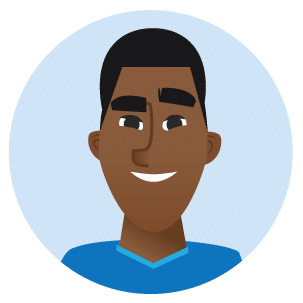 Jayden Harris works as a youth justice advocate. He is a young adult whose calling is to activate youth to make change. A tireless champion of Black youth, Jayden supports them in developing critical consciousness and in advocating for themselves and broader social change. He supports youth-led initiatives and works with schools to elevate issues affecting youths’ ability to thrive.
Jayden Harris works as a youth justice advocate. He is a young adult whose calling is to activate youth to make change. A tireless champion of Black youth, Jayden supports them in developing critical consciousness and in advocating for themselves and broader social change. He supports youth-led initiatives and works with schools to elevate issues affecting youths’ ability to thrive.
Jayden’s relentless focus on youth justice places civic life high on his list of priorities for the future. He wants to make sure that Black youth and others have safe, effective avenues for influencing society. At the same time, Jayden also values recreation, leisure and play. He realizes how important fun and joy are to daily life – and to sustaining people’s spirits in face of oppression. Jayden also places a high priority on having learning environments that welcome and support Black youth, involve them in co-creating their learning journeys and draw upon culturally relevant curricula.
A player standing up for his preferred future would be alert to changes such as those listed below:
- Fight the Power – What if marginalized parents rejected schools’ inadequate technology and distance learning programs, organizing their own educational and family support infrastructure?
- Fast-Forward Learning – What if learning communities adopted compressed, culturally-responsive remediation programs to enable learners with interrupted schooling to catch up to their peers?
- Jazz Up Your Brain – What if students impacted by adversity – and their families and schools – benefited from learning frameworks based on neuroscience research?
Such developments could open new avenues for advancing the aspects of society that Jayden values most and activating youth to make change.
Looking at future possibilities through Jayden’s eyes can help players remember that those possibilities could have very different impacts for different individuals. The future of learning will not be made up of one big canvas, but instead of many smaller pictures depicting specific contexts and life experiences.
I’m getting to live my dream of helping kids navigate toward the best education options for them. – Pat Li
 Pat Li works as a learning journey mentor, a job that would have been described as a classroom teacher back in 2022. In this role, Pat guides learners in designing learning pathways. As an educators’ union member, Pat knows that strong learning outcomes rely on healthy bodies, minds and relationships. Pat connects learners with supportive people and activities and ensures that learners are recognized when they master competencies.
Pat Li works as a learning journey mentor, a job that would have been described as a classroom teacher back in 2022. In this role, Pat guides learners in designing learning pathways. As an educators’ union member, Pat knows that strong learning outcomes rely on healthy bodies, minds and relationships. Pat connects learners with supportive people and activities and ensures that learners are recognized when they master competencies.
As an educator, Pat wants to make sure that future learning environments serve each student well. They also want to make sure that education systems receive the financial and public support they need to fulfill that mission. At the same time, Pat recognizes that children and youth need many more kinds of resources and supports than even the best education systems can provide. Pat wants to see strong social infrastructure that helps them and their families. Pat also places a high priority on approaches that enable health and well-being – even if those approaches seem untraditional or specific to certain contexts.
A player with Pat’s card in their hand would get further from Pat’s preferred future if impact cards describing the changes below were played:
- Hide and Sick – What if racist policies continued to cause Black, Native and Hispanic kids to be less likely than either White or Asian kids to enjoy very good health?
- Content Tsunami – What if constant content consumption took a toll on people’s attention spans?
However, some significant disruptions such as the two listed below could make it easier for Pat’s future aspirations to become reality.
- Out with the Test – What if a mandate required that standardized tests and letter grades be replaced with competency-based assessments and transcripts within five years?
- The New Student Leader – What if a state policy mandated that every secondary and postsecondary institution had at least one student serve on an official decision-making body?
Pat would probably view these disruptions as being positive. But these changes could also cause knock-on effects that might complicate how education worked and how well it served each learner or change Pat’s job in ways that might be difficult, at least at first.
There’s a lot to think through when we look to the future. Exploring these kinds of changes from Pat’s perspective can help players think about how multiple changes and their impacts could intersect to shape what education looks like in ten or more years. And looking at Pat’s preferred future alongside those of other avatars can highlight ways in which those impacts could mean different things for different education stakeholders.
People are still debating how much early childhood education should focus on play vs. academics. I say, “It’s play all the way.” Play, along with community. – Vania Pérez
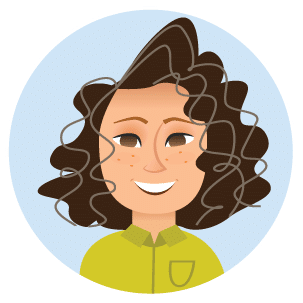 Vania Pérez works as an early childcare facilitator. In 2022 terms, that means that she owns a home-based childcare center. Vania wants all young children to flourish. At her childcare center, she emphasizes play and community through culturally relevant early learning. Owning a home-based center means that she must balance the work of childcare with the work of running a business. A first-generation immigrant parent, Vania wants her middle school children to do well in school and find good jobs.
Vania Pérez works as an early childcare facilitator. In 2022 terms, that means that she owns a home-based childcare center. Vania wants all young children to flourish. At her childcare center, she emphasizes play and community through culturally relevant early learning. Owning a home-based center means that she must balance the work of childcare with the work of running a business. A first-generation immigrant parent, Vania wants her middle school children to do well in school and find good jobs.
Not surprisingly given her focus on culturally relevant early learning, Vania’s preferred future is one in which community and culture are strong and respected. She also wants to make sure that health and well-being get strong support, as she sees first-hand how important they are in setting a foundation for children to flourish. As a business owner and mother, Vania also wants to make sure that the future economy is strong and that her children and others like them have solid employment options.
Someone playing for Vania’s preferred future would take note of developments such as those listed below:
- “Play to Heal, Play to Learn” – What if trauma-informed and culturally relevant play became mainstream in schools, group homes, refugee camps and other support settings such as childcare centers?
- Rock Me, Baby – What if universal, low-cost childcare became available in the U.S.?
- Home Office, Home Classroom – What if people and organizations had to learn to toggle between in-person and remote work arrangements as they faced external disruptions?
Some of these changes might increase demand for Vania’s services, while others might reduce demand by drawing people to other alternatives or making childcare arrangements less regular. Vania would have to think through what these changes might mean for her business, her family and her future aspirations and consider how she might respond, on her own or in collaboration with others.
Playing Vania’s hand can help players consider how various systems intersect to influence children’s experiences of education, as well as the needs they bring to it. Exploring these interconnections can help players consider what dynamics might be at play beneath the surface and what patterns of individual or organizational behavior might need to be addressed to bring about the futures players want.
A lot of kids are more focused on what they enjoy than on school. – Cruz Gómez
 Cruz Gómez is an easygoing high school sophomore who is eager to be done with school. Voted “Most Likely to Become an Influencer” by his peers, he would rather create digital content than study. Cruz is proud of his Mexican heritage and is bilingual. He teaches elders in the community to recycle and compost. He will join activities, including rallying others to support climate actions, if his friends also participate.
Cruz Gómez is an easygoing high school sophomore who is eager to be done with school. Voted “Most Likely to Become an Influencer” by his peers, he would rather create digital content than study. Cruz is proud of his Mexican heritage and is bilingual. He teaches elders in the community to recycle and compost. He will join activities, including rallying others to support climate actions, if his friends also participate.
Like many kids his age, Cruz is pretty focused on recreation, leisure and play. Plus, he wants those things to be part of his future and hopes that kids younger than him have fun options regardless of where they live. With his deep sense of connection and his volunteerism, Cruz also wants community and culture to be strong as people move forward, together. He is also really concerned about climate and environment and hopes to see a future where people have brought our interactions with the planet into better balance.
A player taking on his perspective would pay attention to the kinds of changes described below.
- Pigeon-Holing the Chicks – What if young children’s time and physical movements became more directed, leaving many children with less time to play?
- “Within-trification” – What if communities prevented gentrification by adopting Pittsburgh’s model of leveraging existing assets to improve conditions for current residents?
- Climate Grief – What if depression, anxiety and mourning over climate change created widespread mental health challenges?
Such changes would likely have mixed results for someone standing up for Cruz’s preferred future. Cruz might find himself directly affected by them. He might decide to focus some of his influence on helping others navigate the resulting challenges.
Most future possibilities present both challenges and opportunities – and often both at the same time. Considering the future of learning from Cruz’s perspective can help players think through that complexity by considering how one thing could lead to another – or how the same development could look different for different people or communities.
Cruz could end up being an influencer. So could you.
I promote learning as leveling up. It’s the best way to keep students’ attention. – Suri Devi
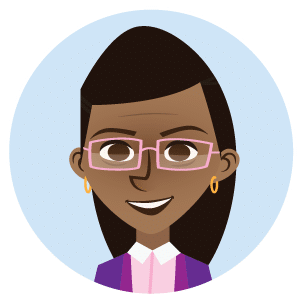 Suri Devi works as chief experience officer for an ed tech company. In 2021, her role would have been called “chief executive officer.” Suri is also mom to two elementary-aged learners. In her job, she seeks to gamify learning for student engagement and mastery. She constantly campaigns for learning communities to use (and purchase) her company’s tools. As part of that effort, she advocates for permissive policies that align educational games with state standards and broaden device access.
Suri Devi works as chief experience officer for an ed tech company. In 2021, her role would have been called “chief executive officer.” Suri is also mom to two elementary-aged learners. In her job, she seeks to gamify learning for student engagement and mastery. She constantly campaigns for learning communities to use (and purchase) her company’s tools. As part of that effort, she advocates for permissive policies that align educational games with state standards and broaden device access.
As her role reflects, Suri values technology and wants to see it, along with science, be valued in the future. In her view, creating and accessing new knowledge and tools help people achieve more of what we want for ourselves. Given her advocacy efforts, Suri also wants to see strong policy and governance that hold people accountable while keeping up with the times. Another big part of her future vision is for recreation, leisure and play to be appreciated for their inherent value – and also for their role in supporting learning and other serious endeavors.
A player advocating for Suri’s interests would watch for developments such as those listed below:
- State Funding Cliff – What if downturns in state revenues resulted in significantly reduced PreK-12 education spending?
- Gene Editing from the Comfort of Home – What if biohackers – including hobbyists, amateur geneticists, youth and enthusiasts – practiced gene editing on their own, sparking concern among some bioterrorism experts?
- AI-AssitED – What if AI-powered digital games became the preferred tools for personalized learning, linking it more tightly to ed tech?
In their own ways, each of these changes could feel shocking. Yet each of them reflects a signal of change, or early indicator, that is emerging today. Even with her focus on ed tech and her priorities for the future, Suri might find these changes to be complicated, neither entirely positive nor absolutely negative. Bringing in her perspective as a parent could raise even more layers of complexity and ambiguity.
If you get dealt Suri’s hand, you can explore those prospects alongside her.
There’s nothing like that ‘aha’ moment when a group of educators looks up from a dashboard with new insights into learning. – Alex Weber
 Back in 2022, Alex Weber aspired to work as an assessment director. But, as his career developed, that role shifted to include a broader view of data analytics. Now, Alex works as a community intelligence specialist. Alignment, accountability and algorithms are his areas of expertise. He curates data about learning and helps his learning community make sense of it all. Alex also helps educators use technology for evidence-based, formative assessment and feedback. And he ensures alignment with state accountability systems while keeping an eye on privacy and security.
Back in 2022, Alex Weber aspired to work as an assessment director. But, as his career developed, that role shifted to include a broader view of data analytics. Now, Alex works as a community intelligence specialist. Alignment, accountability and algorithms are his areas of expertise. He curates data about learning and helps his learning community make sense of it all. Alex also helps educators use technology for evidence-based, formative assessment and feedback. And he ensures alignment with state accountability systems while keeping an eye on privacy and security.
In keeping with his role in the education system, Alex looks to a future in which social infrastructure is strong and people think broadly about what kinds of resources and supports people need and how we get them. He even sees data as a form of social infrastructure. Alex values science and technology too. He knows first-hand how much light new knowledge and tools can shed on people’s work – including the very human work of education. Alex is also very focused on community and culture. Ultimately, in his view, data are for and about people. Looking at them in isolation does not change much. But looking at data together – engaging in collective sensemaking – can help people make sense of how things have been going and how to move forward. Alex wants to see a future where such practices are commonplace.
A player taking on his perspective would be watching for shifts such as those mentioned below.
- The School Next Door – What if U.S. states led the rapid adoption of the community school model, where schools become community hubs to support students, families and communities?
- Pretty Please – What if commercial, artificially intelligent assistants could be easily programmed to reinforce specific values, such as politeness, through verbal interactions?
- Let’s Network – What if educational networks connecting districts, schools, resources and people continued to spread?
Each of these developments could impact what it meant to work as a community intelligence specialist. They could augment or complicate Alex’s efforts to bring his learning community together around data and create effective formative assessments.
I take great pride in helping learners and colleagues with the two big W’s: well-being and wayfinding. – Sequoia Yazzie
 Sequoia Yazzie works as a well-being coordinator, a job that would have been described as a guidance counselor back in 2022. In this role, Sequoia helps learners and colleagues attend to their well-being. She also helps them with wayfinding, developing the habits and skills to explore what comes next. She guides learners in organizing environmental justice actions. She also assists them in developing the social-emotional skills, racial literacy and cultural competency needed to participate fully in society.
Sequoia Yazzie works as a well-being coordinator, a job that would have been described as a guidance counselor back in 2022. In this role, Sequoia helps learners and colleagues attend to their well-being. She also helps them with wayfinding, developing the habits and skills to explore what comes next. She guides learners in organizing environmental justice actions. She also assists them in developing the social-emotional skills, racial literacy and cultural competency needed to participate fully in society.
With her focus on well-being, Sequoia wants to make sure that future learning environments support learners’ health and well-being, and that broader society does so too. She also wants people to attend to climate and environment. These crucial areas are changing fast, and they impact people’s ability to thrive. Having strong civic life is also very important to Sequoia’s preferred future. She wants everyone to be able to participate in and influence society, and she supports young people in developing the skills to do so.
A player advancing Sequoia’s preferred future would pay special attention to changes such as those described below:
- Detention? More Like Deten-Zen – What if schools increasingly turned to mindfulness practices and meditation to help students ease anxiety and as an alternative to traditional discipline approaches?
- To Measure or Not to Measure – What if community-led well-being scorecards improved health outcomes and community empowerment but critics insisted that human experience cannot be measured?
- Crisis of Crises – What if children and families normalized volatility and uncertainty due to a seemingly endless string of social crises?
These changes could help bring education and community life closer to Sequoia’s preferred future. Even the crisis of crises could strengthen civic life by bringing people together to address collective trauma. But these changes could also complicate the path forward, especially if they had had inequitable impacts or if widespread trauma were not addressed.
Sequoia’s interests highlight how even seemingly straightforward aspirations such as realizing health and well-being for all or having strong civic life do not usually mean the same thing to everyone or cannot be realized in the same way for each individual or community.
My mantra is to do good while doing well. – Ying Cho
 As Ying Cho was climbing the corporate career ladder, he saw corporate social responsibility shift to include a broader focus on community alongside climate. Now, in 2031, he works as Director, Community and Environmental Initiatives for a big corporation. In this role, he leads the integration of the three “P’s” – people, planet and profit – into everyday business operations. Ying advocates for renewable energy policy. He also encourages collective action on issues affecting employment policies that support employees’ well-being in his workplace and beyond.
As Ying Cho was climbing the corporate career ladder, he saw corporate social responsibility shift to include a broader focus on community alongside climate. Now, in 2031, he works as Director, Community and Environmental Initiatives for a big corporation. In this role, he leads the integration of the three “P’s” – people, planet and profit – into everyday business operations. Ying advocates for renewable energy policy. He also encourages collective action on issues affecting employment policies that support employees’ well-being in his workplace and beyond.
When Ying looks to the future, he puts climate and environment first. Too many places are burning, scorching and flooding, and he sees it as being urgent that individuals and businesses intervene to get climate change in check. With his corporate role, Ying also wants to make sure that work and employment remain strong even as we scale back humanity’s footprint. He knows how much policy and governance can influence large-scale problems and individuals’ lives, so he wants to make sure that these areas find renewed effectiveness as people’s challenges get ever more complex.
A player advocating for his future would scan the horizon for early indicators of change such as those below:
- Remaking Geographies – What if some communities strengthened their focus on environmental sustainability to buffer against system shocks and reinvigorate their economies?
- Lending a Hand – What if communities, experts, parents and organizations lent their time and knowledge to educators and students to create real-world learning opportunities for all?
- Equity 2.0 – What if targeted universalism, an equity-oriented policy framework whereby coalitions use group-specific strategies to achieve universal goals, gained traction in DC?
Someone in Ying’s position might be able to draw upon such changes to advance his goals, creating multiple kinds of benefit. But other factors could undermine their impact as competing forces sought to navigate uncertain terrain.
Bring your own lived experiences and hopes for the future to the table. Help Ying Cho advocate for his and his employees’ futures. Then take some insights forward for yours.
The avatars help guide your path and navigate the tensions and disruptions during the game. The headlines you create and discussions you take away are certainly not by their design. They’re by yours.
Learn more about IMPACT: Learning Edition’s gameplay and how it can help your learning communities think about the futures you all envision.
